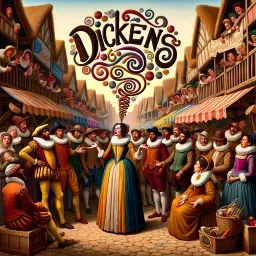”There is a tide in the affairs of men,
which, taken at the flood, leads on to fortune“

0
0
0
0
- Meaning
- The phrase metaphorically speaks to the opportunities in human life that must be seized at the right moment to achieve success. Shakespeare uses the image of the tide to illustrate this idea. Much like the high tide that must be taken at its peak to ensure a safe and beneficial voyage, moments of opportunity—"taken at the flood"—can lead to great fortune if acted upon promptly. This phrase underscores the importance of timing and making decisive actions when the moment is ripe.
- Allegory
- The elements included in the image reflect the core of the given phrase. The vast ocean signifies the scope of human affairs, while the approaching tidal wave embodies the critical opportunities ("tides in the affairs of men") that must be seized to lead to "fortune." The shimmering golden light within the wave underscores the promise of success. The person's poised stance highlights readiness and determination, embodying the decisive action needed. The clocks and gears illustrate the importance of timing, reinforcing the message that such moments are fleeting. Finally, the twilight blues and dawn pinks in the sky symbolize the ephemeral nature of opportunities, bridging night and day to emphasize the temporary window in which to act.
- Applicability
- The meaning of this phrase can be applied to everyday life by encouraging people to recognize and seize opportunities when they present themselves. Whether in one's career, personal relationships, or any other venture, acknowledging the critical moments and taking action can lead to greater success and fulfillment. Procrastination or hesitation, on the other hand, can result in missed opportunities and unfulfilled potential.
- Impact
- This phrase has had a lasting impact on both literature and popular culture. It has been cited in various works of literature, motivational speeches, and even political rhetoric to emphasize the importance of seizing crucial opportunities. The idea resonates with many people as it encapsulates a profound and universal truth about human experience and decision-making.
- Historical Context
- The historical context of this quote is the Elizabethan era, specifically around 1599-1600, when Shakespeare wrote "Julius Caesar." The play explores themes of fate, free will, and the repercussions of political decisions. During this period, English society was undergoing significant changes, with the Renaissance fostering a renewed interest in classical antiquity, arts, and literature. The quote reflects both the period's fascination with human agency and the timeless nature of seizing pivotal moments in life.
- Criticisms
- Some criticisms of the phrase might come from arguing that it oversimplifies complex life situations. Critics may suggest that not all opportunities are evident in the moment and that the pressure to always act quickly might lead to impulsive or reckless decisions. Additionally, some might argue that the phrase does not account for systemic or societal barriers that can prevent individuals from seizing opportunities, no matter how astute they are to momentary chances.
- Variations
- Various cultures have their own interpretations of the importance of seizing opportunities. For instance, the Chinese proverb "机不可失,失不再来" (opportunities won't come again) also emphasizes that one must act on opportunities when they present themselves, as they may not return. Such variations highlight a common understanding across diverse cultures about the necessity of timely action.
-

The empty vessel makes the loudest sound.
-

Men at some time are masters of their fates.
-

O, what a rogue and peasant slave am I!
-

Is this a dagger which I see before me, the handle toward my hand?
-

Rich gifts wax poor when givers prove unkind.
-

I cannot tell what the dickens his name is.
-

What light through yonder window breaks?
-

How far that little candle throws his beams! So shines a good deed in a naughty world.
-

I am constant as the northern star.
-

One touch of nature makes the whole world kin.
-

I wasted time, and now doth time waste me.
-

A friend should bear his friend's infirmities, but Brutus makes mine greater than they are.
No Comments